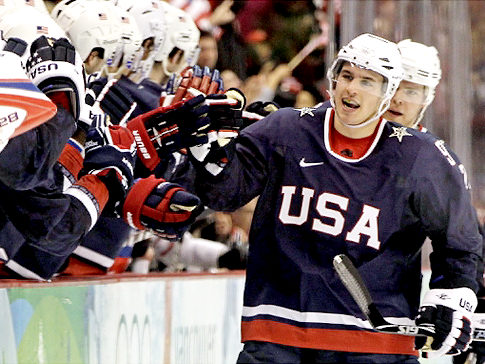 Having déjà vu? If you are, I don’t blame you, as this is the fourth National Hockey League lockout over the past 19 years. The 2012 lockout began at 11:59 pm EDT on September 15, 2012 following the conclusion of the NHL’s collective bargaining agreement (CBA), less than a month prior to the scheduled beginning of the 2012–2013 NHL season. The owners declared a lockout of the members of the National Hockey League Players’ Association (NHLPA) after a new agreement could not be reached before their deadline.
Having déjà vu? If you are, I don’t blame you, as this is the fourth National Hockey League lockout over the past 19 years. The 2012 lockout began at 11:59 pm EDT on September 15, 2012 following the conclusion of the NHL’s collective bargaining agreement (CBA), less than a month prior to the scheduled beginning of the 2012–2013 NHL season. The owners declared a lockout of the members of the National Hockey League Players’ Association (NHLPA) after a new agreement could not be reached before their deadline.
Why is it called a lockout, you ask? It seems like such an overpowering term to describe simple negotiations. The term lockout designates a temporary work stoppage or denial of employment (in this case the NHLPA) during a labor dispute by the management of a company (the NHL). It is usually implemented by simply refusing to admit employees onto company premises, and may even include taking measures such as changing locks (hence the term) and hiring security to guard the premises. In the case of lockouts of major sports, this means the players are not allowed to train using team facilities, or interact with coaches and other employees of the league.
The NHL lockout has resulted in a delay of the 2012-2013 season. The start of the regular season, which was originally scheduled for October 11, has been postponed through at least the month of November. Among the canceled games this far included the annual Hall of Fame game between the New Jersey Devils and the Toronto Maple Leafs, which was scheduled for November 9, and the Thanksgiving Showdown, which was supposed to air on NBC on Black Friday.
The dispute between the league and the Players Association boils down to money. At issue for the owners are desires to reduce the players’ guaranteed share of 57% of hockey related revenues to 46%, introduce a five-year term limit on contracts, eliminate salary arbitration, and change free agency rules.
“We don’t need to have a lockout. We could keep playing and bargain at the same time. That’s not what the owners want to do. They want a lockout and use it as a tactic. The fans lose the game they love,” Toronto Maple Leafs goalie James Reimer said in a public relations offensive video, made by the Players’ Association and posted on YouTube.
The message the Players’ Association is trying to convey to fans is the players are willing to play and negotiate at the same time, and that the players have conceded salary growth. The players want their concessions to help small-market teams survive, not help the rich teams get richer. The lockout has left many NHL players seeking temporary jobs playing for foreign teams, both to raise money and stay in season form.
This is the third major sports league to have a lockout in the past couple years. 2011 saw the lockout of the NBA and NFL, both of which left an unfavorable image of league officials to fans. The NHL lockout is following a similar path, where the players and fans are seen as victims of greedy league owners looking to get richer. With the Minnesota Wild making some key offseason additions, signing forward Zach Parise and defenseman Ryan Suter, Wild fans are particularly eager to start the season. Until both sides reach an agreement, we will have to get our hockey fix by watching the Gustavus hockey teams take the MIAC by storm.

The lockout has left many NHL players seeking temporary jobs playing for foreign teams, both to raise money and stay in season form.